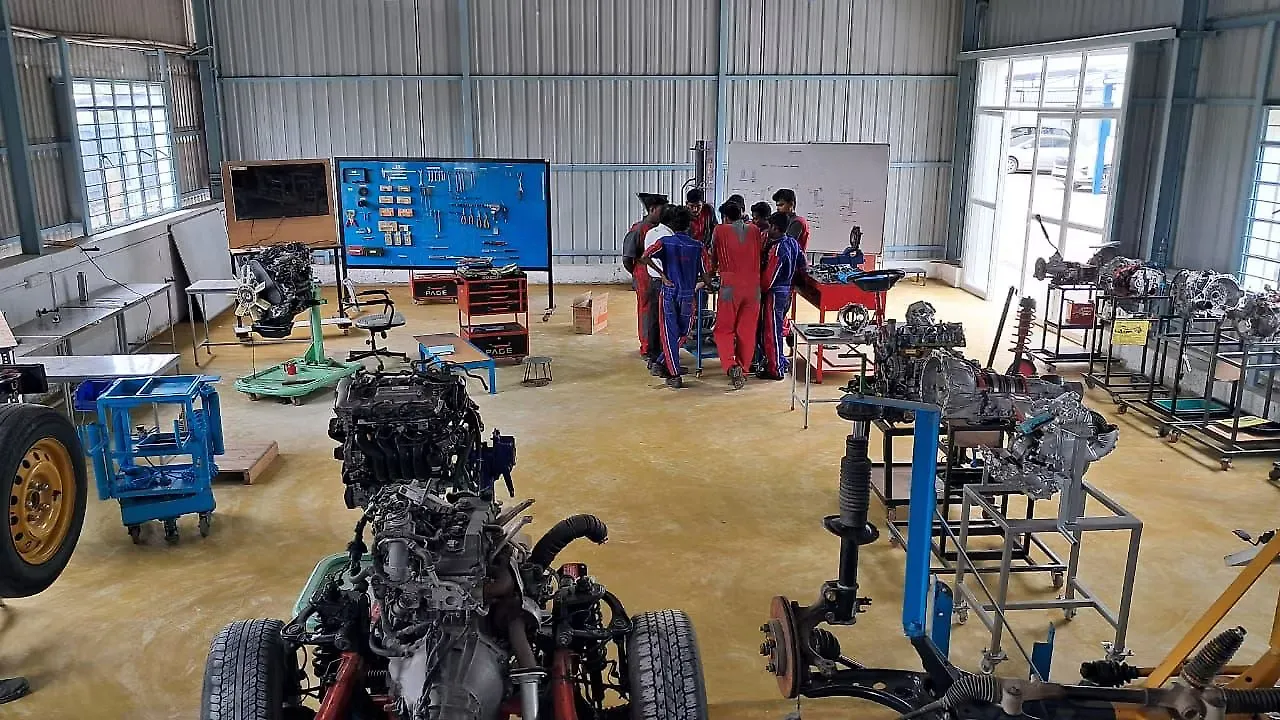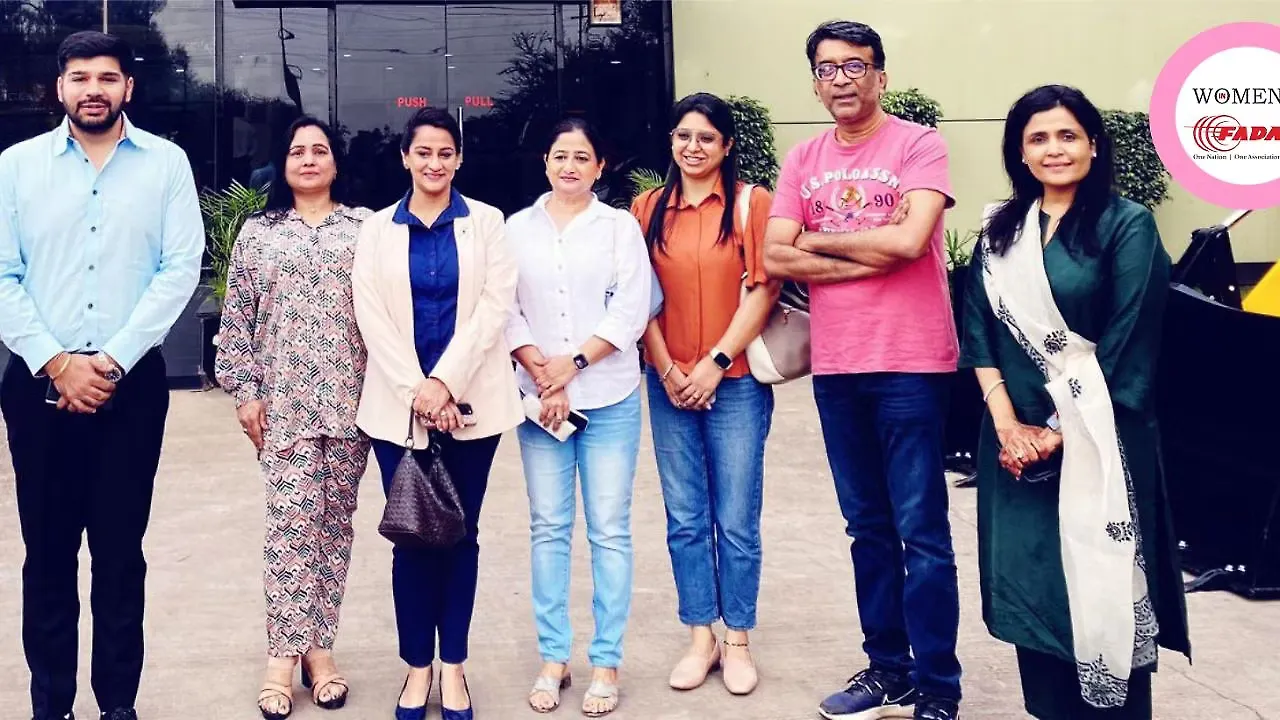
Vigneshwar has been a key member of the Apex Consultative Committee of VECV for 16 years, demonstrating his deep industry expertise and commitment to the automotive sector. He has also been an integral part of the Toyota Dealer Council for 11 years, including serving as the Head of the Toyota India Service Dealer Council for 7 years. He has been a council member of FADA for 12 years. Beyond his professional accomplishments, he also serves as the Area Commander for the Home Guards in Coimbatore City. Edited Excerpts:
Congratulations on your appointment as President of FADA. What are your immediate priorities as you step into this role?
Thank you! My immediate priority is to further advance the Model Dealer Agreement, which we have been working on for quite some time. This initiative is particularly important because we observed that the existing agreements between OEMs and dealers are often imbalanced. Our goal is to create a more equitable framework for both parties.
As part of this process, we reviewed over 200 dealer agreements from various manufacturers across the globe and compared them with those used in India. While the differences were not always drastic, there were critical gaps that needed to be addressed. We've had constructive discussions with individual OEMs to identify these gaps and work towards creating a more balanced and fair agreement for all stakeholders.
Could you elaborate on the critical gaps you identified in the dealer agreements?
For example, in many developed countries, when dealers install large signage to promote vehicle brands as per OEM specifications, they receive a depreciated value for that signage in the event of a dealership closure, with the manufacturer taking it back. Unfortunately, this practice is not followed in India, leaving dealers to bear the full cost.
Could you elaborate further on your other key priorities?
Another critical area we’re focusing on is the Retail Protection Act. In the past, we've seen vehicle manufacturers, across all segments, exit the Indian market abruptly, leaving dealers with significant losses. This not only impacts dealers but also the broader economy, as customers who bought those vehicles face steep depreciation. Dealers' substantial investments become worthless overnight. We're urging the government to safeguard both Indian consumers and business owners, ensuring our rights and investments are protected.

We're also committed to improving ‘training’ across the industry. We've been providing specialised training led by industry experts for the next generation, as well as top and middle management teams at dealerships, helping them operate more efficiently.
A particularly important issue, which is close to my heart, is the environment. We believe that economic progress and environmental sustainability can go hand in hand. Many of our dealerships are transitioning into green dealerships, using solar power and implementing zero discharge water waste systems. We're actively promoting the concepts of ‘recycle and reuse,’ which not only benefit the environment but can also be financially rewarding, creating a win-win situation for all involved.
How do you ensure sustainable profits, and what strategies do you use to keep the dealers’ team motivated?
I believe these challenges are not permanent. For example, we've faced high inventory situations in the past, like the recent one, but they eventually ease. While these obstacles come and go, the earth and its resources are constant, and we need to find sustainable solutions. Yes, scale plays a role—the size of the dealership matters—but it's about finding the right approach. Not every dealership needs to do everything. Larger dealerships may be able to implement five different strategies, while smaller ones might focus on just one, but that can still be profitable for them. We aim to explore these avenues, working with subject matter experts and OEMs to see how we can all move towards a greener and more sustainable future.
We're noticing that the next generation is often not taking over family-owned dealerships, similar to trends seen in MSMEs in manufacturing sector and is even in developed nations. Do you have any solutions in mind to address and prevent this shift?
You're absolutely right. A few generations ago, it was almost expected that the next generation would naturally take over the family business, but that’s not the case anymore. There are two perspectives to this shift. On one hand, there's some instability due to the lack of continuity. On the other hand, it opens up the opportunity for dealerships to become more professionalised. It's crucial for owners to adopt a more professional approach in managing their businesses, while also fostering a sense of ownership among professionals. Ownership doesn’t necessarily mean having a financial stake in the company—it can also mean embracing a sense of responsibility and commitment to the brand.

To address this, we’ve introduced various programmes aimed at engaging the next generation and sparking their interest in the business. With the dealership landscape evolving, young people may not always see the best examples in older models of management. That's why we're offering courses that showcase industry best practices in HR, customer relations, and operations. By presenting the best examples from the industry, we hope to inspire the next generation to see the potential and bright future within this business, motivating them to continue the legacy.
With rising real estate costs and the need for dealers to maintain test drive vehicles for every model, how can dealers optimise their resources while safeguarding their margins?
We need to engage with manufacturers on a brand-by-brand basis and consider both perspectives—ours as dealers and theirs as OEMs. It’s not just about relying on FADA to answer every question; we, as dealers, need to proactively raise these issues ourselves. Of course, test drive vehicles are crucial—without them, how can we offer customers the experience they need to appreciate and enjoy the vehicle?
However, maintaining excess test drive vehicles doesn’t make business sense. Every investment, including test drive cars, needs to offer a solid return, as that’s the core of our business. We, as FADA, need to work closely with our dealers to understand their challenges, particularly when they are asked to maintain more test drive vehicles than the market logically demands. It’s about finding the right balance between customer satisfaction and business viability.
New technologies bring numerous opportunities for vehicle manufacturers and suppliers. What key element do you see driving this evolution?
Telematics is poised to become a significant player in the automotive industry, especially when used with the customer's consent. It holds immense potential to reduce costs in areas like insurance, financing, and maintenance. This can be highly beneficial, not just for individual customers, but also for those managing large fleets. Telematics allows for smarter, data-driven decisions that can ultimately enhance efficiency and provide better value for both customers and businesses alike.

How does telematics benefit dealers specifically?
Telematics benefits dealers by creating a new revenue stream. We can offer customers valuable insights from the data, helping them identify driving habits that can be improved. By enabling drivers to adopt better driving practices, customers can achieve over 5% better fuel efficiency and extend tyre life by reducing excessive braking and hard acceleration. In doing so, we provide a tangible benefit to the customer while potentially introducing a subscription model where dealers can offer coaching services, turning this into a mutually beneficial opportunity.
With EVs having minimal service requirements, do you anticipate this will negatively impact dealers' service business?
The EV business model is still evolving, and no one has fully mastered it yet. However, the concerns around reduced service requirements for EVs are valid, and we've raised this with manufacturers. The dealership model must adapt accordingly. Margins and incentives at the point of sale will likely need to improve, as there’s a common belief that dealerships make money through servicing rather than vehicle sales. I disagree with that. A successful dealership must be profitable through both sales and service.
When dealerships are profitable, they can invest in better infrastructure, open new outlets, and ultimately provide a higher level of service to customers in the long run. The business model needs to reflect this balance, and it's also crucial to consider the segment the dealer is in. Adjustments in incentivisation should be part of the discussion to ensure sustainable profitability.
With Newgen customers being highly tech-savvy and well-informed, how do dealerships stay updated with the rapid technological transformations in such a short time frame?
We are actively conducting numerous seminars, online discussions, and in-person meetings to address the rapid changes in technology and sales practices. Additionally, we ensure that dealerships are connected with industry partners who can provide valuable insights, helping them leverage customer data more effectively. This enables dealerships to offer better, more personalised service. Many OEMs’ Dealer Management Systems (DMS) aren’t optimal, so we focus on bridging that gap by working closely with dealer principals. This ensures they can later engage with their teams to improve overall dealership performance and stay ahead in a tech-savvy market.
Also Read:
FADA, Frost & Sullivan Release 2024 Customer Experience Index